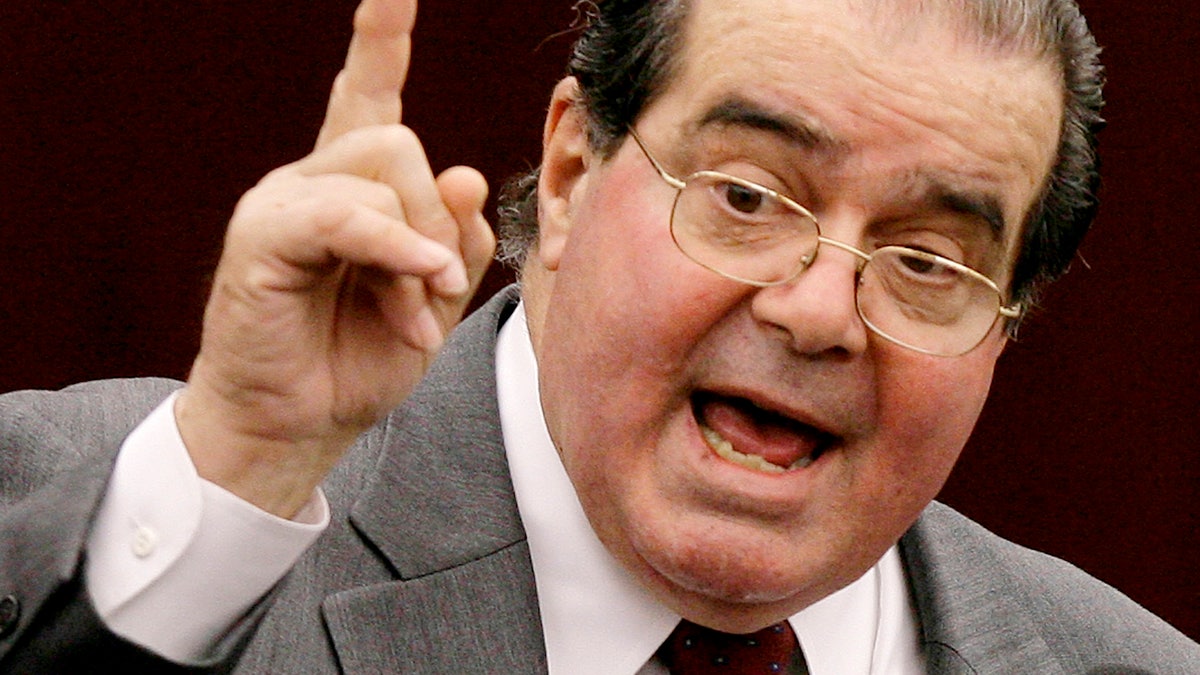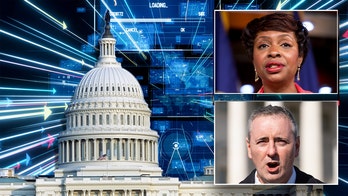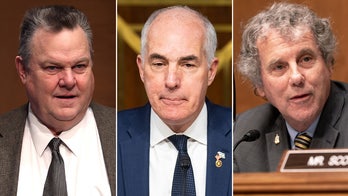
FILE: June 2012: Justice Antonin Scalia. (AP)
Years of heated debate about federal immigration laws and what states can do to fight what they see as lax enforcement of those laws finally reached the Supreme Court Wednesday as eight justices heard arguments about a controversial Arizona measure targeting employers who knowingly hire illegal workers.
This case will hardly be the first dispute over a state immigration law to make its way to the high court. Another Arizona immigration law, known as SB 1070 and largely invalidated in July, is likely to reach the justices in the next year or two. And there’s a good chance that other cases, including a challenge to a controversial immigration ordinance in Hazleton, Pennsylvania, will also end up before the high court.
In Wednesday’s case, Justice Antonin Scalia expressed the views shared by many who feel the federal government has abdicated its near exclusive authority to control illegal immigration.
"[W]hat Arizona says has occurred here is that the scheme in place has not been enforced, and Arizona and other states are in serious trouble financially and for other reasons because of -- of unrestrained immigration," Scalia said.
In Scalia's explanation, Arizona's law allowing the state to revoke business licenses for companies that knowingly hire illegal workers is a "massive" step apart from federal immigration controls but defended the state's action because "expectations change when the federal government has -- has simply not enforced the immigration restrictions."
Much of the hour-long argument focused on the technical reading of a 1986 federal law and whether the Legal Arizona Workers Act is preempted by that language. The dispute centers on a phrase that appears to give states an opportunity to pass immigration statutes related to "licensing and similar laws."
"[I]t seems to me quite remarkable to think that Congress intended through a parenthetical referring to 'through licensing laws' to allow the state to adopt an entire alternative shadow enforcement mechanism," argued lawyer Carter Phillips on behalf of the Arizona Chamber of Commerce and other business groups against the Arizona law. Philips was joined by lawyers from the ACLU.
That unusual alliance was also joined by the Obama administration which made its case against the state law saying it goes against the federal authority to regulate immigration. Acting Solicitor General Neal Katyal dismissed the contention made by some justices that the Arizona law is really about business licensing--something states can regulate--and not immigration which they cannot.
"[O]ur position is that this is not a licensing law because it doesn't bear any of the indicia of a traditional licensing law," Katyal said.
Many Arizona politicians were in the courtroom including Gov. Jan Brewer (R) who is a highly visible defender of her state's right to fight illegal immigration.
Arizona Solicitor General Mary O'Grady told the justices that the state concedes the federal oversight of immigration created by lawmakers in Washington, "but they left important discretion in terms of our ability to impose sanctions through licensing and similar laws, and we are doing so by establishing this scheme that provides for the suspension and revocation of state licenses."
Justice Stephen Breyer expressed strong concerns that the state law would lead to employers--fearful that they'd be punished for hiring illegal workers—to discriminate against potential employees because they might appear to be illegal. But Breyer seemed to accept O'Grady's explanation that Arizona's lawfully comports with the federal statute which equally punishes employers who either hire illegal workers or discriminates in its hiring practices.
Justices Ruth Bader Ginsburg and Anthony Kennedy each expressed reservations over another part of the Arizona law that forces employers to use the federal e-verify database to check on the immigration status of potential hires. Congress has kept the program voluntary and Arizona's mandate puzzled Kennedy.
"[Y]ou are taking the mechanism that Congress said will be a pilot program that is optional and you are making it mandatory," Kennedy told O'Grady. "It seems to me that's almost a classic example of a state doing something that is inconsistent with a federal requirement."
For the 20th time this term, Justice Elena Kagan did not take part in Wednesday's arguments because of her prior work as U.S. solicitor general. Should the remaining eight justices split then the decision of the lower court is affirmed without precedent. That would mean Arizona’s law would survive. So far, none of the other 19 cases in which Kagan recused have resulted in a 4-4 split.




